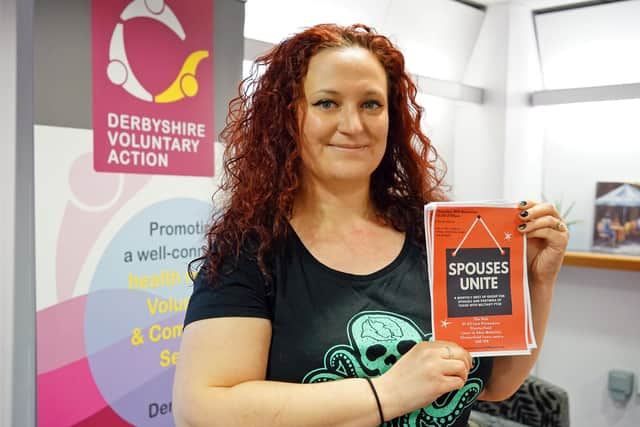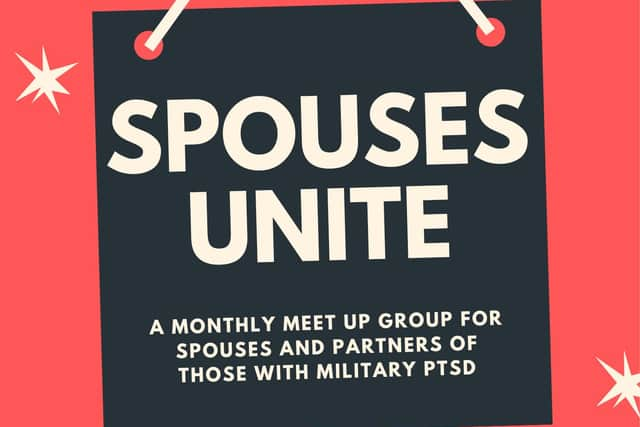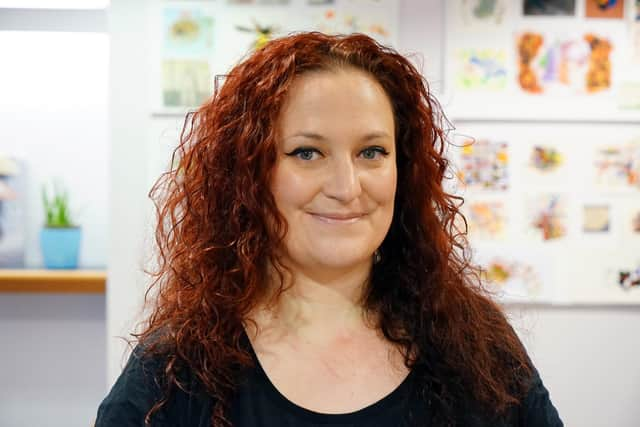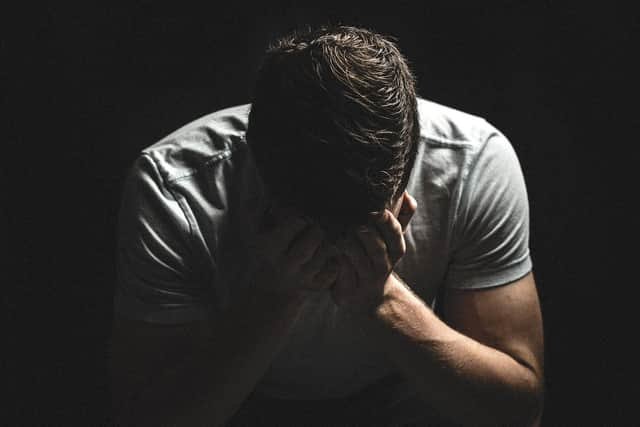New support group for other halves of Chesterfield people with military PTSD
and live on Freeview channel 276
But it doesn’t just affect those who have experienced the horrors of war – it can also have a very real impact on the day-to-day lives of their spouses and partners.
With that in mind, one woman whose partner lives with severe combat-based PTSD has started a new support group in Chesterfield to help the other halves of ex-service personnel.


Advertisement
Hide AdAdvertisement
Hide AdSpouses Unite, set up by Mica Day, meets at The Hub in Low Pavements, next to Eden Mobility, every month – with the next session to be held between 6.30pm and 8pm on January 20.
Mica said PTSD affects ‘every aspect’ of her partner’s day and night, and includes symptoms such as extreme anxiety, regular nightmares and mood swings.
She told the Derbyshire Times: “As a partner I want to do everything I can for him, making his as comfortable as possible, talking through whatever we need to and generally doing everything I can to make sure he doesn’t feel alone.
“But you, without realising, put everything you have into looking after your other half and before you know it you have completely forgotten about yourself.


Advertisement
Hide AdAdvertisement
Hide Ad“You cannot pour from an empty cup and self-preservation is extremely important.
“If you are not keeping yourself in check there is no way you can do your best to help others.”
And that is why she decided to start Spouses Unite in partnership with Links and Derbyshire Voluntary Action.
“Being the partner of someone with military PTSD you can easily put yourself to the back of the list,” she said.


Advertisement
Hide AdAdvertisement
Hide Ad“I realised this was happening to myself and saw a need for this group to exist, a need for a safe space for people going through similar situations at home to sit and chat over a cuppa.
“PTSD has such a vast scale of severity and can differ in the ways it impacts on people’s lives, but to sit with someone else knowing they have felt how you’ve felt at least once is extremely valuable.
“Being able to talk to someone who might have a different perspective on the situation, someone who is non-judgemental, understanding and knows things are never black and white, is essential to your well-being and moving forward for yourself and your partner.”
She added: “In putting your partner first you can easily become isolated – you might stop seeing people or simply not have the time or energy to do other things.


Advertisement
Hide AdAdvertisement
Hide Ad“This group would mean a little break away into a different environment other than home and a chance to meet new people who understand.
“I know there is a big ex-forces presence in Chesterfield and some of them will have partners.
“There is no pressure to speak about what’s going on at home, though you can if you want to.
“But it’s more about supporting each other be that with advice, having a vent or chatting about the latest Netflix show. Socialising with others who understand.”
Advertisement
Hide AdAdvertisement
Hide AdMica thanked everyone who has supported Spouses Unite so far.
She said: “In setting up this group I have been lucky enough to be supported by Debbie Fennell, who is the social connectedness development worker at Derbyshire Voluntary Action, on a project called Feeling Connected in North East Derbyshire and Chesterfield.
“The project supports people like myself who in turn want to connect with and support other people through community groups or within their neighbourhoods or communities on anything that reduces loneliness and social isolation.
“I’m hoping my group will do just that.”
Debbie said: “My role is about building relationships with people like Mica who want to make a difference in their street, estate, village, town or workplace – and to be responsive in helping them in whatever way they need.
Advertisement
Hide AdAdvertisement
Hide Ad“It’s a challenging time but even in the pandemic there are many ways we can all keep our spirits up and continue to connect with family, friends and the people who live around us.”
For more information about Spouses Unit – which is free to attend – email [email protected] or search for ‘Spouses Unite’ on Facebook.
If you have any ideas about how to keep the community connected, Debbie would like to hear from you. Email [email protected] or call 07547342251.
NHS fact file on PTSD
PTSD is an anxiety disorder caused by very stressful, frightening or distressing events.
Advertisement
Hide AdAdvertisement
Hide AdSomeone with PTSD often relives the traumatic event through nightmares and flashbacks, and may experience feelings of isolation, irritability and guilt.
They may also have problems sleeping, such as insomnia, and find concentrating difficult.
These symptoms are often severe and persistent enough to have a significant impact on the person’s day-to-day life.
Causes of PTSD include military combat, serious road accidents and violent personal assaults.
Advertisement
Hide AdAdvertisement
Hide AdPTSD can develop immediately after someone experiences a disturbing event or it can occur weeks, months or even years later.
PTSD is estimated to affect about one in every three people who have a traumatic experience, but it's not clear exactly why some people develop the condition and others don't.
You should visit your GP if you are still having problems about four weeks after the traumatic experience, or if the symptoms are particularly troublesome.
If necessary, your GP can refer you to mental health specialists for further assessment and treatment.
Advertisement
Hide AdAdvertisement
Hide AdFor more information about PTSD and the treatments available, visit www.nhs.uk/mental-health/conditions/post-traumatic-stress-disorder-ptsd/overview
